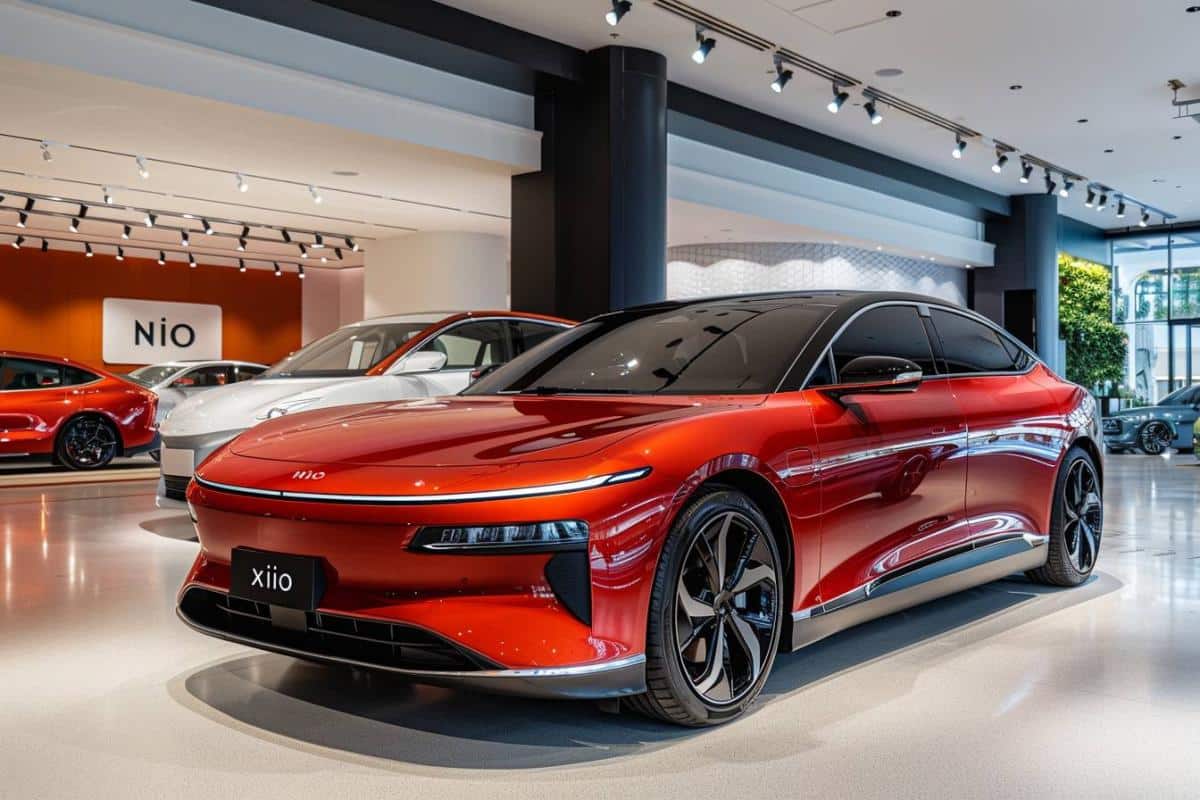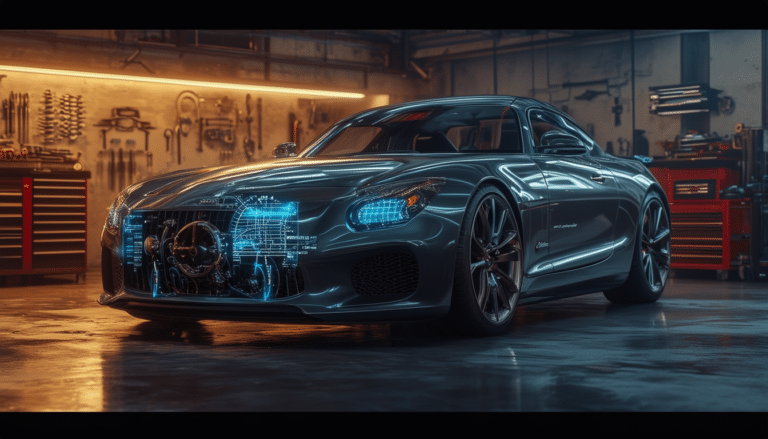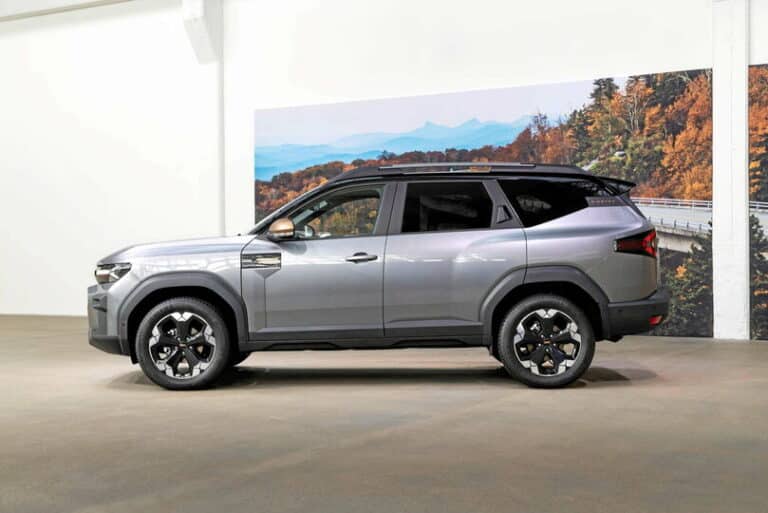Atention: why do Chinese manufacturers like Xpeng and NIO take risks in the EU despite tariffs?

The automotive industry remains a fascinating and constantly evolving sector. Recently, the Chinese car manufacturers Xpeng and NIO announced that they would continue to sell their vehicles in the European Union despite the imposed tariffs. This news is significant not only for car enthusiasts but also for market analysts and consumers.
Impact of tariffs on the automotive industry
The tariffs imposed by the European Union are an unavoidable reality, and their impact on the automotive industry can be considerable. However, Chinese car manufacturers like Xpeng and NIO have decided to intensify their efforts in the European market despite these financial challenges.
It is noteworthy how automotive companies are dealing with tariff barriers. These tariffs increase the cost of imported vehicles, which could potentially make Chinese cars less competitive compared to European products. However, Xpeng and NIO seem to be prepared to absorb these additional costs or find creative ways to mitigate them.
As a car enthusiast, I have observed that the strategy of these Chinese companies includes technological innovations and improvements in the user experience. This can justify the higher prices resulting from the tariffs. Technology and design are crucial aspects that can influence the purchasing decision.
The role of technology and innovation
In the current context, technology plays an essential role in the automotive industry. Xpeng and NIO have recognized this and have invested significantly in technological developments. For example, these manufacturers have been pioneers in advanced driver assistance systems and in integrating artificial intelligence.
Additionally, both manufacturers are betting on electrification and sustainability. Electric vehicles (EVs) are an increasing trend, and Xpeng and NIO are well positioned in this segment. It is crucial to highlight that Ford has addressed similar challenges in its EV sales by acknowledging past mistakes.
Attraction of the European market
The European market is strategic for Chinese manufacturers due to its size and inclination towards sustainability. The EU has set ambitious targets to reduce greenhouse gas emissions, which favors the adoption of electric vehicles. Therefore, Xpeng and NIO have a significant opportunity to capture a portion of the European market.
It is interesting to see how these companies are adapting their marketing strategies to address the preferences and needs of European consumers. This includes targeted advertising campaigns and strategic alliances with local distributors. This cultural adaptation is vital for the acceptance of new brands.
NIO and Xpeng’s strategies to mitigate tariffs
To counter the economic impact of tariffs, NIO and Xpeng have implemented various strategies ranging from localizing production to optimizing their supply chain.
A key strategy is the investment in local production plants in Europe. Local manufacturing not only significantly reduces tariff costs but also reinforces the trust of European consumers. Building assembly plants in countries like Germany and Hungary is a bold but necessary gamble.
Supply chain optimization
Another novel tactic is the optimization of the supply chain. Blockchain technology and advanced data analytics allow these companies to manage their resources more efficiently. Moreover, the focus on logistics and distribution finds more economical ways to deliver products to consumers.
The use of advanced technologies has also shown improvements in the safety of EVs. According to a recent article about how startups protect their cars against hackers, these innovations are crucial for the durability and safety of the final product.
Adjustments in price and quality
In addition to logistical and production strategies, NIO and Xpeng have adjusted their pricing and quality models. They offer a variety of models that meet different market segments, from more economical cars to high-end ones. This diversified approach allows the companies to compete on multiple fronts.
Similarly, both manufacturers have improved the quality of their vehicles. Durability and advanced features in their cars make them very attractive to European consumers. This combination of price and quality is fundamental to their market penetration strategy.
Technological trends and the future of Chinese car manufacturers
The future of Chinese car manufacturers in the European Union looks promising, especially given their focus on technological trends. From artificial intelligence to 5G connectivity, these innovations are marking a new era in the automotive industry.
As a mechanical and automotive design enthusiast, I find it fascinating how new technologies are redefining the way we conceive vehicles. The integration of autonomous systems and improvements in energy efficiency are just some of the advancements we are seeing.
Artificial intelligence and autonomous driving
Artificial intelligence (AI) has revolutionized many aspects of our lives, and the automotive industry is no exception. Chinese manufacturers are investing considerable resources in developing AI to enhance the safety and efficiency of their vehicles. Advanced driver assistance systems (ADAS) and machine learning algorithms are just a few examples.
Autonomous driving is another area where AI is having a significant impact. Xpeng and NIO have introduced autonomous driving technologies in some of their models, allowing for a safer and more comfortable driving experience. These advancements not only improve customer satisfaction but also position Chinese brands as leaders in technological innovation.
Connectivity and 5G
The 5G technology is another crucial component that is transforming the automotive industry. Enhanced connectivity allows for faster and more efficient communication between vehicles and the surrounding infrastructure, improving safety and operational efficiency.
The implementation of 5G in vehicles facilitates new functionalities such as real-time navigation, over-the-air software updates, and in-car entertainment services. These additional features not only enhance the user experience but also add value to Chinese vehicles in the competitive European market.
Sustainability and electric vehicles
Finally, sustainability is a trend that we cannot ignore. Xpeng and NIO are at the forefront of producing electric vehicles (EVs), which perfectly aligns with the European Union’s goals for emission reductions. These manufacturers are making remarkable efforts to improve the energy efficiency of their cars and promote sustainable production practices.
In addition to ecological efforts, the availability of charging stations and supporting infrastructure are determining factors for the widespread adoption of EVs. In this regard, NIO and Xpeng are investing in charging networks and other necessary infrastructures to support their customers in Europe.
We can expect that the combination of technological trends and sustainability will keep these Chinese manufacturers in a competitive position despite the tariff challenges. Continuous innovation and a proactive adaptation to market needs are essential for their ongoing success.
Summary and future perspectives
For me, as a car enthusiast, watching how Chinese manufacturers like Xpeng and NIO tackle tariff and technological challenges is fascinating. Their ability to adapt and thrive in the European market despite barriers is a testament to their ingenuity and determination.
The impact of tariffs has been substantial, but it has not deterred these manufacturers from continuing their efforts in Europe. Through strategies of production localization, supply chain optimization, and a focus on price and quality, they have demonstrated admirable resilience.
The adoption of advanced technologies such as artificial intelligence, 5G connectivity, and sustainability indicates that Chinese manufacturers are not only prepared to face current challenges but are also poised to lead the future of the automotive industry. These advancements ensure their relevance in an increasingly competitive and demanding market. It is exciting to think about the impact these technological developments will have in the coming years.
In summary, Xpeng and NIO are paving the way for future success in the European Union. Their commitment to technological innovation and sustainability allows them not only to survive but also to thrive in a challenging environment. Undoubtedly, watching the ongoing development of these manufacturers will be a fascinating experience for any automotive enthusiast.



